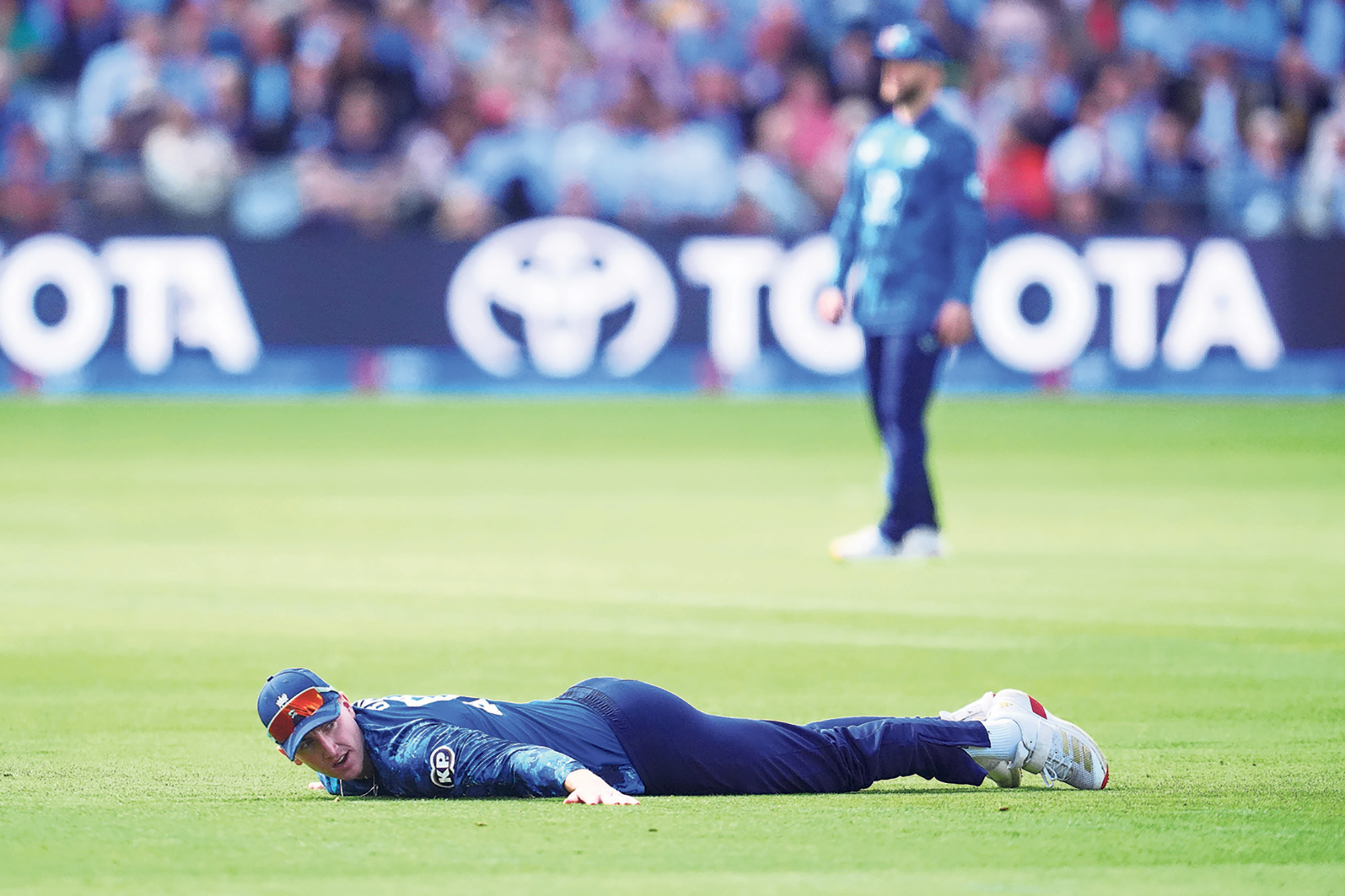At its core – to a backdrop of perpetual disgruntlement and disdain from competing quarters – so many of cricket’s issues boil down to a question of meaning. What is the purpose of this match, that series or some other format entirely?
England’s September white-ball games tend to occupy second-class citizen status in the international summer; strange addenda to be endured around showers and impending gloom, before attention turns to winter activities on foreign shores. Even after these one-day and T20 internationals against South Africa, a second-string team that warrants nothing more than the description “England XI” will navigate the short trip across the Irish Sea for another three-match T20 series. Why? Well… because. Cricket.
There was one solitary day between the end of England’s absorbing Test series with India and the start of the Hundred. That tournament then finished two days before this South Africa visit. In the two months before the upcoming Ashes, England will fly to New Zealand for six more white-ball matches; a fortnight after leaving Sydney for the fifth Test, they return to short-form fare in Sri Lanka. Can it really all matter?
Every sport, barring the behemoth that is football, is increasingly in thrall to mega-event culture. Take horse racing, where the continual growth of the Cheltenham Festival stands in inverse proportion to the prestige of jump racing’s remaining calendar. England red-ball series against any of the other 10 Test nations now bow down in subservience to the Ashes – even this summer’s India classic was habitually framed as preparation for the Australia showdown.
In the wake of England’s seven-wicket mauling in the first ODI at Headingley on Tuesday, captain Harry Brook acknowledged those who had been short-changed in the stands, admitting “nobody wants to come and watch that”. Franchise commitments had denied the hosts any preparation time, with pre-match training sessions sparsely attended.
Priorities undeniably lie elsewhere: in August’s controversial franchise gig that now bankrolls England’s domestic game, and in the looming series Down Under that we are told will define Ben Stokes’ captaincy legacy.
But this entire South Africa series is being played to full houses, with today’s dead-rubber finale at the Utilita Bowl selling out last October within four days of general release. Somehow – amid the scrambling of players’ brains from five days, to 100 balls, to 50 overs – England must care.
They have now lost five of their last six ODI series, also exiting the two most recent global tournaments at the earliest possible stage. With only the top eight nations in the ICC rankings qualifying directly for the next World Cup, England currently occupy the final berth, sandwiched between Afghanistan and West Indies. Since the start of the last World Cup, Bangladesh and Zimbabwe are the only Test nations with a worse ODI win percentage.
So, while England’s domestic game has largely turned its back on elite 50-over fare – converting the One-Day Cup into a developmental competition played during the Hundred – the continuation of the international format leaves Brook’s side forced to seek solutions to their own malaise.
There are long-term plans in place: England’s vastly experienced top five in this series have been installed as those intended as the foundation of their 2027 World Cup campaign. In Jacob Bethell, who struck a sparkling and hugely welcome 58 off 40 balls in defeat on Thursday at Lord’s, there is a precocious player with huge potential, even if the grand proclamations of his future greatness may well be premature.
Newsletters
Choose the newsletters you want to receive
View more
For information about how The Observer protects your data, read our Privacy Policy
The latest defeat lacked the ignominy of the embarrassing first encounter, but if England’s abject performance in the series opener had the hallmarks of wholesale catastrophe, the second loss raised more specific concerns as they fell five runs short of what would have been a record chase at Lord’s.
Tuesday’s humiliation was so hasty that Brook did not have the chance to deviate from his frontline bowling quartet. Two days later, the extent of the fifth-bowler conundrum was laid horribly bare.
England’s three seamers, plus the superb Adil Rashid, combined for figures of six for 216 from their 40 overs – an economy rate of 5.4. Dotted throughout South Africa’s innings as Brook forlornly attempted to find ways of hiding them, the part-time spin of Bethell and Will Jacks then cost one for 112 off the remaining 10 overs – an economy rate of 11.2.
The folly of Brook’s preference to pack the batting line-up was exposed without a true all-rounder to balance the side, an error that might be rectified in the future with Sam Curran belatedly given a chance to prove himself as a late addition to the upcoming T20 squad. Rehan Ahmed, meanwhile, seems firmly lodged as Rashid’s understudy rather than someone who could play alongside his fellow leg-spinner.
The third seamer rotation has landed on Jamie Overton for the final ODI, meaning no immediate opportunity for Sonny Baker to banish the demons of Tuesday’s brutal international debut, when he leaked 76 wicketless runs in seven overs. It seems talk of the Hampshire youngster potentially sneaking a place in the Ashes squad is premature, although he will hope to prove his worth in the Ireland T20 series.
This week granted that additional trip off after worryingly diminishing returns this summer, a visibly jaded Ben Duckett has one more England duty to serve after retaining his opening berth for Sunday’s game. “We want to try to play our strongest side in every white-ball game,” said Brook.
They are admirable words and, as captain, Brook has a project to build. But it just cannot be true. Some cricket has to mean more than others.
Photograph by Adam Davy/PA Wire



